Opinion polls
Blue Shirt conducts public opinion polls and publishes findings to reflect citizens’ views on democracy, federalism, and conflict resolution issues during the current political and armed conflicts and make sure citizens’ voices are heard.

Civic Actors’ Perceptions of The Implications of Article 33 of ILO
Blue Shirt team aim to explore civic actors’ perceptions of the implication of the ILO resolution, as well as the broader sanctions imposed on Myanmar—particularly among those based inside the country. A total of 250 civic actors representing groups—ranging from self-help groups to research organizations—participated in this study, representing 144 townships across 14 states and regions. The poll was open from July 5 to July 6, 2025.
Read Report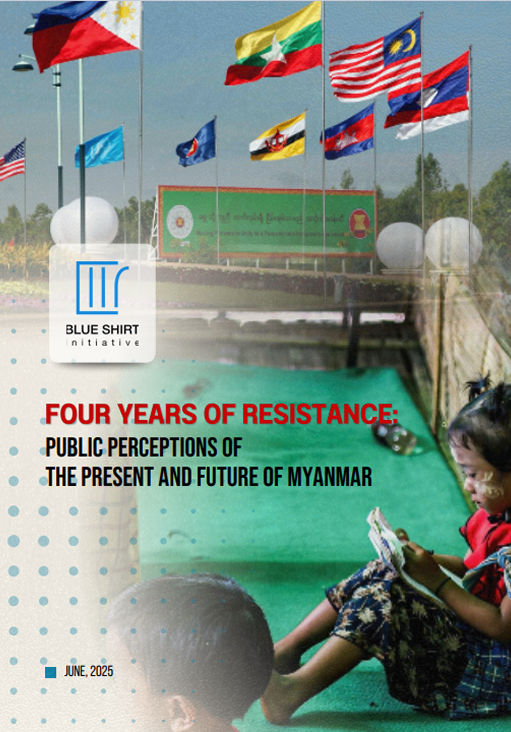
Four Years of Resistance:Public Perceptions of the Present and Future of Myanmar
From March 21 to 25, 2025, the Blue Shirt team interviewed 3,128 people from 237 townships across the country. During the survey, respondents were asked about their perceptions and expectations regarding the current situation in Myanmar—specifically, how they feel about the Spring Revolution at present, whether they are optimistic or pessimistic, hopeful or depressed, and about their daily struggles. As discussions around the formation of new states or federal units—and even secession—become more frequent among key stakeholders, we asked the public how they feel about these issues. In addition, we asked their views on what they believe would be realistic and pragmatic solutions to end the ongoing conflicts.
Read Report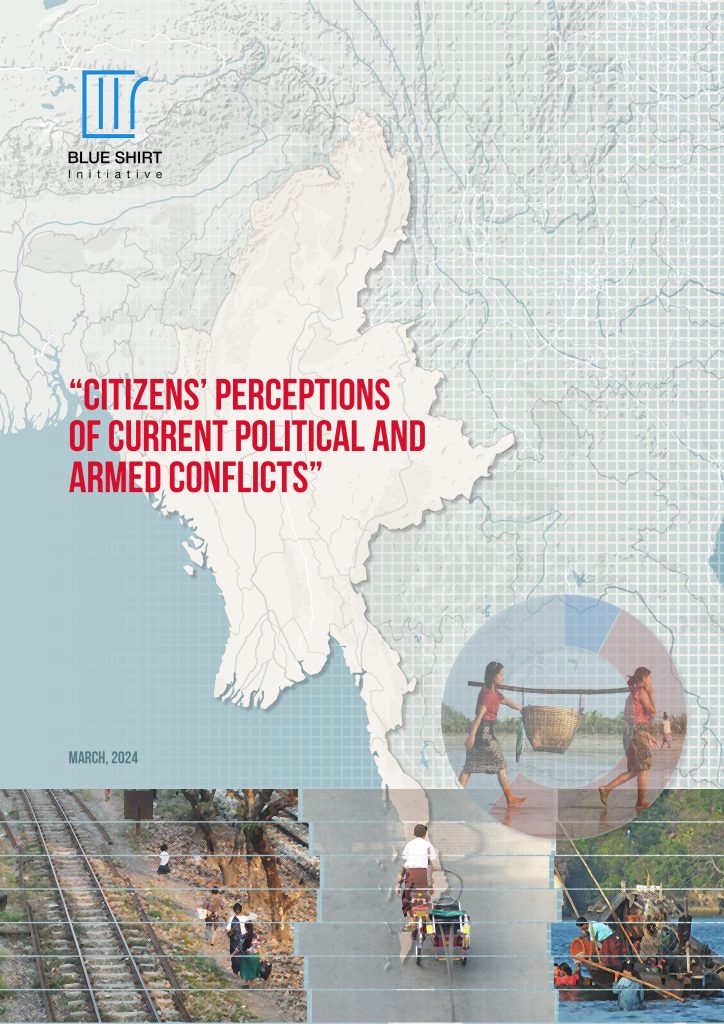
Citizens’ Perceptions of Current Political and Armed Conflicts
In this survey research, we intend to bring attention to citizens’ voices which we believe are not only important to listen to but crucial to hold the people in power accountable. The survey was designed to explore the values and principles people believe in, their stance on the strategy of the political leadership, their perception of the ongoing political crisis, and whether they view the current situation negatively or positively. Generally, respondents are pessimistic about the current situation and the level of interpersonal trust is very low. While there is a high level of commitment to democracy among the respondents, they are uncertain about the future of democracy in Myanmar. Even though military means are seen as the most effective way to end political and armed conflicts, there is a growing trend in accepting the role of international and regional mediation, and the dialogue among military and political leaders.
Read Report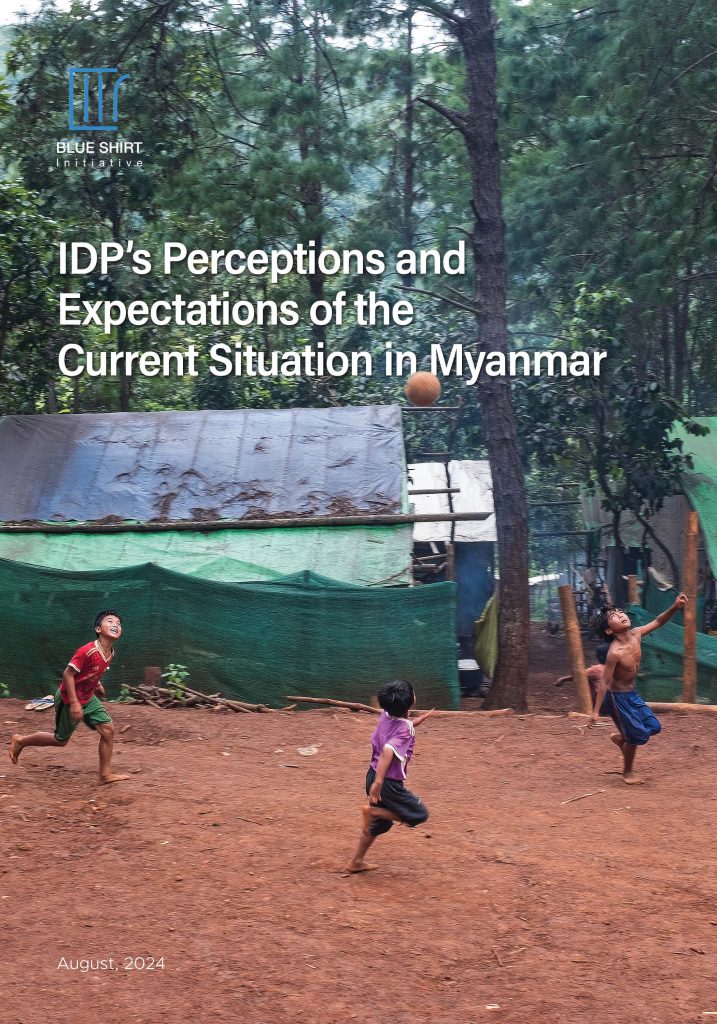
IDPs’ Perceptions and Expectations of the Current Situation
The Blue Shirt team conducted a mini survey to understand the perceptions of internally displaced persons (IDPs) regarding the current situation, their concerns, and expectations for the country. “Generally, IDPs were pessimistic about the current political conflicts but were resilient and hopeful for those struggling for democracy, the democratic movement, and the future of the country.” The full report can be downloaded from the links below.
Read Report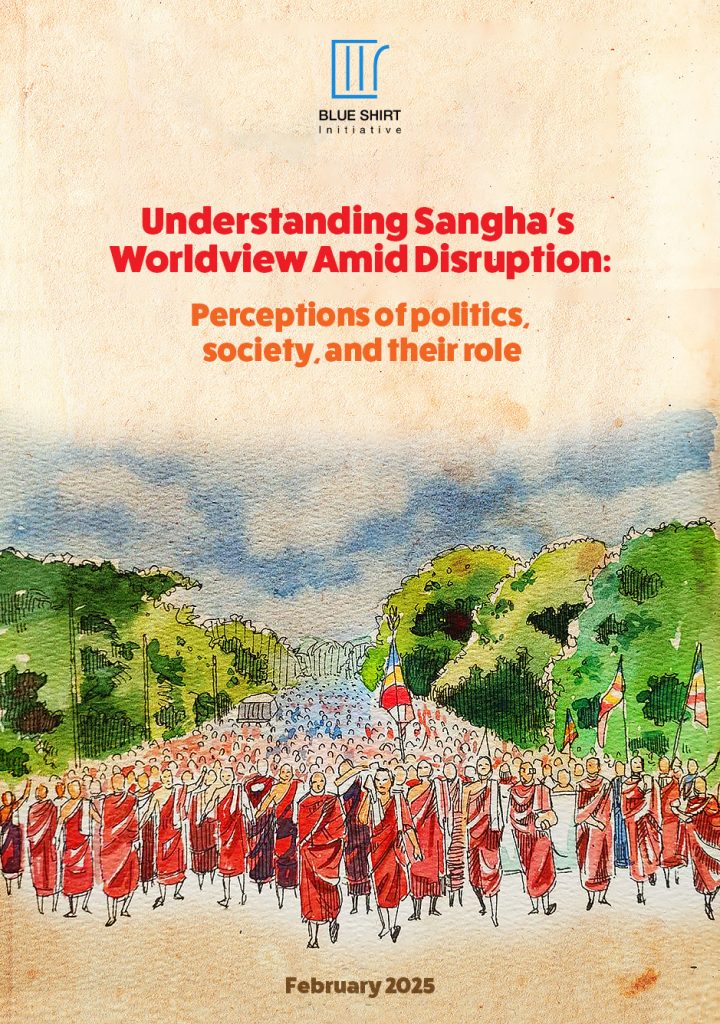
Understanding Sangha’s Worldview Amid Disruption
Perceptions of politics, society, and their role. In this survey, we touch upon various issues that could provide nuances in establishing strategic communication between key stakeholders and the Sangha community in Myanmar. These include their perspectives on the changing society amid technological developments, their attitudes toward democratic values, their perceptions of post-coup conflicts, and their views on the different political actors involved in the current political dynamics.
Read Report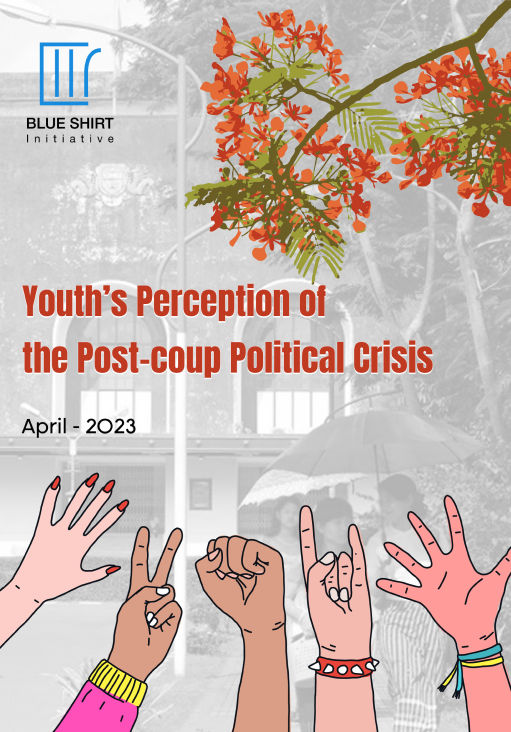
Youth’s Perception of the Post-coup Political Crisis
From March 29 to April 5, 2023, the BSI (Blue Shirt Initiative) team conducted a mini-survey to understand the impact of the post-coup political crisis posed on youth and their expectations for the future, particularly the university students; how the post-coup political and armed conflict following the coup affected their education, future prospects, and their day-to-day existence. Furthermore, we included a couple of questions to understand their perception of democracy and democratic values during this period.
Read Report